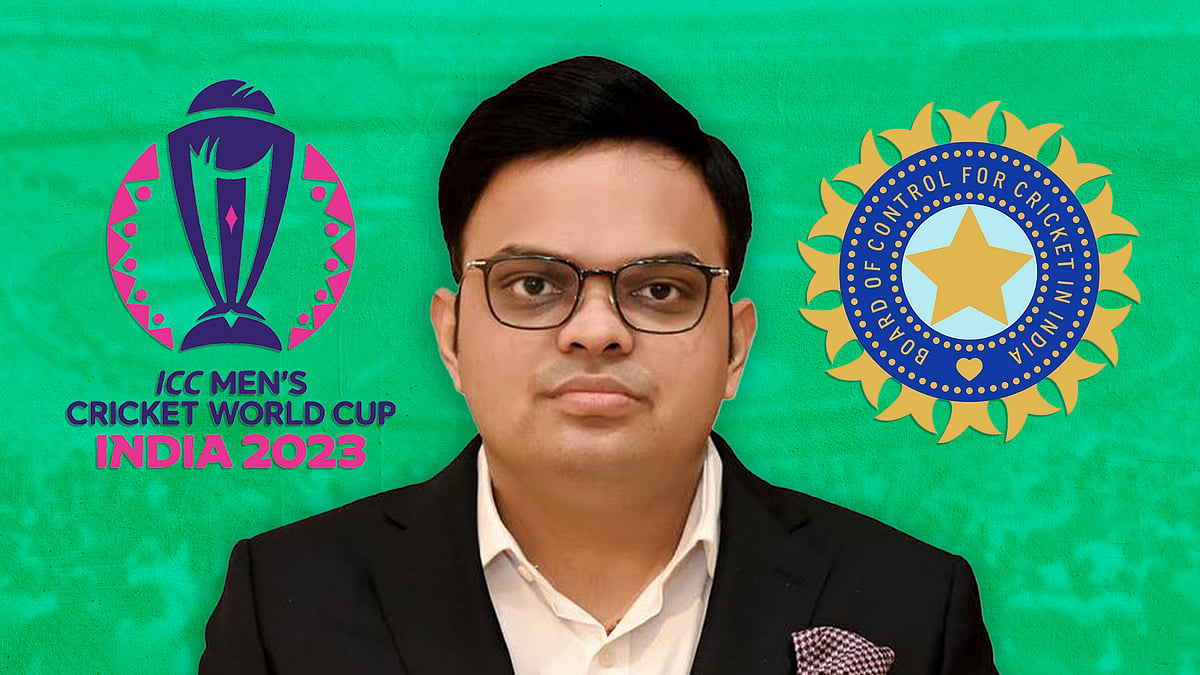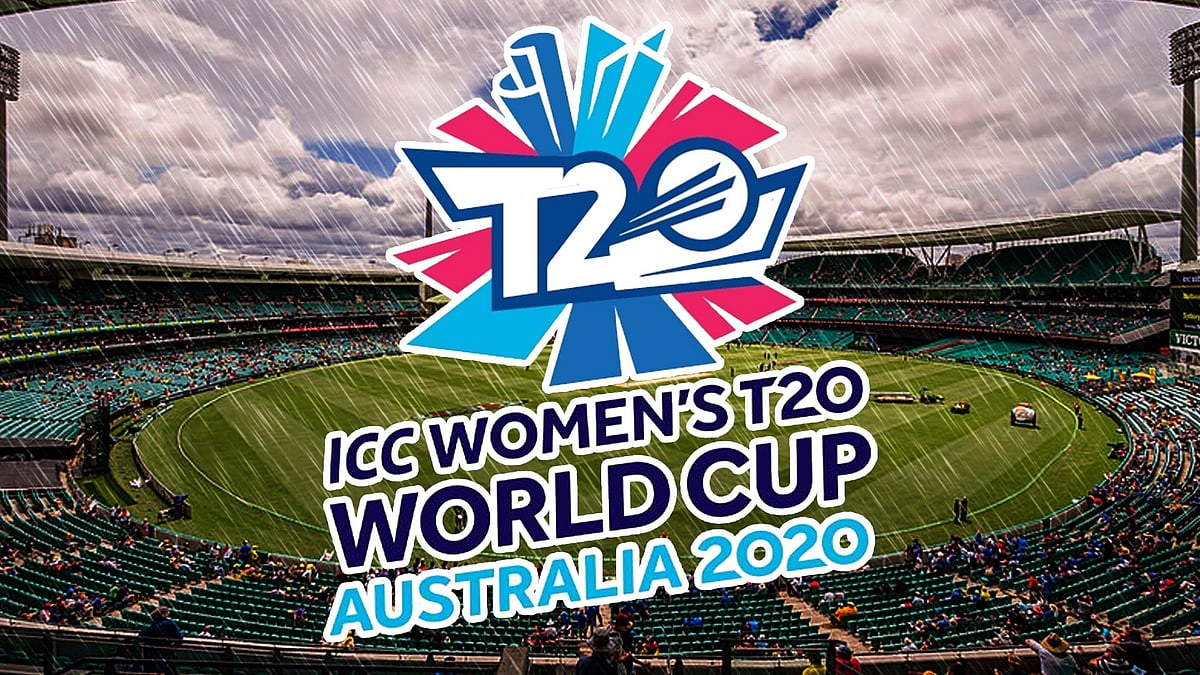‘Unprecedented’: Pakistan journalists face visa uncertainty for Cricket World Cup despite ICC accreditation
Not only journalists, but Pakistani cricket fans who have already bought match tickets are also facing visa delays.
In over two decades of his career as a Karachi-based sports journalist, Javed Iqbal has always been in the stadium stands to cover the Pakistan cricket team’s matches. The senior journalist’s reportage of the game has taken him to several countries, including five visits to India.
But this year for the ICC Cricket World Cup in India, Iqbal will be one of 50-odd journalists from Pakistan who will most likely miss on-field reporting on Pakistan team’s sporting actions.
The World Cup began on October 5 and the Pakistan team has already played two matches. But journalists from the neighbouring country still haven’t received visas to cover the event – this despite being shortlisted from over 200 applications and accredited by the International Cricket Council to cover the tournament that is held every four years.
“It has been very disappointing,” said Iqbal, who works with digital news outlet 24 News. “Politics will keep happening between countries but if you let people come, it will only increase the friendship. I have always had very nice experiences in India. And although India-Pakistan has seen some bad times, it has never come to this before.”
The visas are usually issued before the tournament begins. But until October 10, the process had not even begun for Pakistani journalists. Pakistani sports journalists told Newslaundry the non-issuance of visas was “unprecedented”.
After efforts from the Pakistan Cricket Board and outcry by journalists on social media, the Indian High Commission in Pakistan on October 10 asked a handful of Pakistani journalists to submit their passports to obtain visas.
Newslaundry learned that while a few journalists were contacted by the high commission, the majority are still awaiting any kind of intimation.
It’s now a race against time, with the much-anticipated India-Pakistan match taking place on October 14 at the Narendra Modi Stadium in Ahmedabad.
Visa policy not announced, despite host agreement
It isn’t just journalists. The Pakistan cricket team reportedly faced an “extraordinary delay” in being issued Indian visas. At the time, the PCB said that the delay had hampered the team’s preparations.
Meanwhile, many Pakistani cricket fans who have already bought tickets for matches in India have not received their visas yet.
Due to tensions between India and Pakistan, the process to grant visas to Pakistanis is difficult. But journalists and fans travelling for events such as the ICC Cricket World Cup apply under special visa conditions that are supposed to be easier. But this time the visa policy was not announced, so the process itself did not begin.
It has been more than a decade since India and Pakistan stopped playing bilateral matches against each other due to souring relations. Matches between the two countries have been limited to the ICC and the Asia Cup. Last month, however, India chose to not tour Pakistan for the Asia Cup and instead played the matches in Sri Lanka.
In a statement earlier this week, the PCB said it was “extremely disappointed” to see that journalists and fans from the country were still facing “uncertainty” about obtaining visas to view Pakistan’s games. The board said it had reminded the ICC and BCCI of their “respective obligations”. The host agreement for such events also has terms and conditions that guarantee visas for fans and journalists from countries participating in the event.
“If the team from Pakistan is travelling, why can’t the journalists?” asked Zubair Ali Khan, deputy editor at WE News. “In this whole political situation, it is the journalists who are targeted. This is such a big event, and that too it is happening in India, where cricket is a holy game. But since we are not there, and don’t have sources there, we are not able to track the activities of the Pakistan team. We have to rely on Indian media. So far, there have been almost no stories about the movement of the team.”
Affecting work
Journalists said that besides the coverage of the matches, being on the ground provides them with opportunities to do stories “around the movements of the Pakistani cricket team, interviews, and the behind-the-scenes action”.
“The requirement of our channel is to go live from the stadium, as we have done for every series we have covered,” said Qadir Khawaja, a journalist with Samaa TV who has reported on sports for eight years. “We do live coverage, vox pop, interviews, interact with spectators, among other things. But this time, we can’t do any of it. It’s pathetic that the World Cup is happening and we are sitting here instead of where the matches are going on.”
While some journalists said they were relying on ground reports from Indian journalists and others attending matches, Khawaja pointed out that it’s an unreliable approach.
“We can’t rely on other reports. As a journalist, unless we see it from our eyes, the situation is not clear,” he said. “We have sent our country’s team which sends the message that politics should be kept separate. So, sports reporters too have nothing to do with politics.”
Before Pakistan’s match against Sri Lanka on October 10, the ICC said that in addition to taking questions from media persons present at the venue, the Pakistan team representatives at the press conference will also answer questions sent by members of the Pakistan media who are yet to make it to the event.
This did not go down well with the visa-less journalists.
“Even during Covid, when things were hybrid, some of us had managed to make it to the matches. The ones who could not come would send their questions this way. But if accreditation has been approved, why are we being asked to send these questions on WhatsApp?” said Khawaja.
Asghar Azim, general secretary of the Pakistan Sports Writers Federation, said that the body had approached both the PCB and the ICC regarding the issue.
“This has been a jolt to our profession, we are very disturbed,” Azim said. “We never thought that sports journalists would get stuck in the issues between the two countries. Can’t understand the reason for the same, especially since the ICC has given accreditation. Very few of these journalists are new; most have covered matches in India before.”
Azim said the manner in which some journalists had been approached by the Indian High Commission to start the visa process was also arbitrary. “Firstly, it is all happening so late. And now only selected journalists are being allowed - on what basis? There is no clarity. The organisers should have made required arrangements in advance.”
Huzaifa Khan from Samaa TV said that the lack of Pakistani journalists and fans at the stadium may also affect the performance of the Pakistani cricket team.
“It is important for the host to treat everyone equally. It’s about dignity. Only when a reporter is on the field can they observe with clarity, question the players on things they have the best context about, look at the situations, and interact before and after the matches.”
Newslaundry sent queries on the matter to both the ICC and the BCCI representatives. This report will be updated on receiving their response.
Meanwhile, we learned that the ICC has been in touch with the BCCI regarding the issue.
Sources familiar with the matter said that the visa process is different for each country, and there has been a delay in Pakistan’s case as several Indian agencies and ministries are required to give clearance for the visa.
They iterated that due to strained India-Pakistan ties, there are more background checks, and while the ICC provides accreditation and letters for visas, the government takes the final call.
Meanwhile, Pakistani presenter Zainab Abbas – who had arrived in India as part of the ICC digital team to cover the World Cup – exited the country merely five days into the tournament.
While the ICC maintained that Abbas left due to “personal reasons” and had not been deported, social media was rife with rumours that she had been asked to leave due to her decade-old “anti-India” tweets.
 Cities sidelined, the Pakistan dilemma: How BCCI’s playing politics in the World Cup schedule
Cities sidelined, the Pakistan dilemma: How BCCI’s playing politics in the World Cup schedule How ICC’s inept handling of premier tournaments is harming cricket
How ICC’s inept handling of premier tournaments is harming cricket